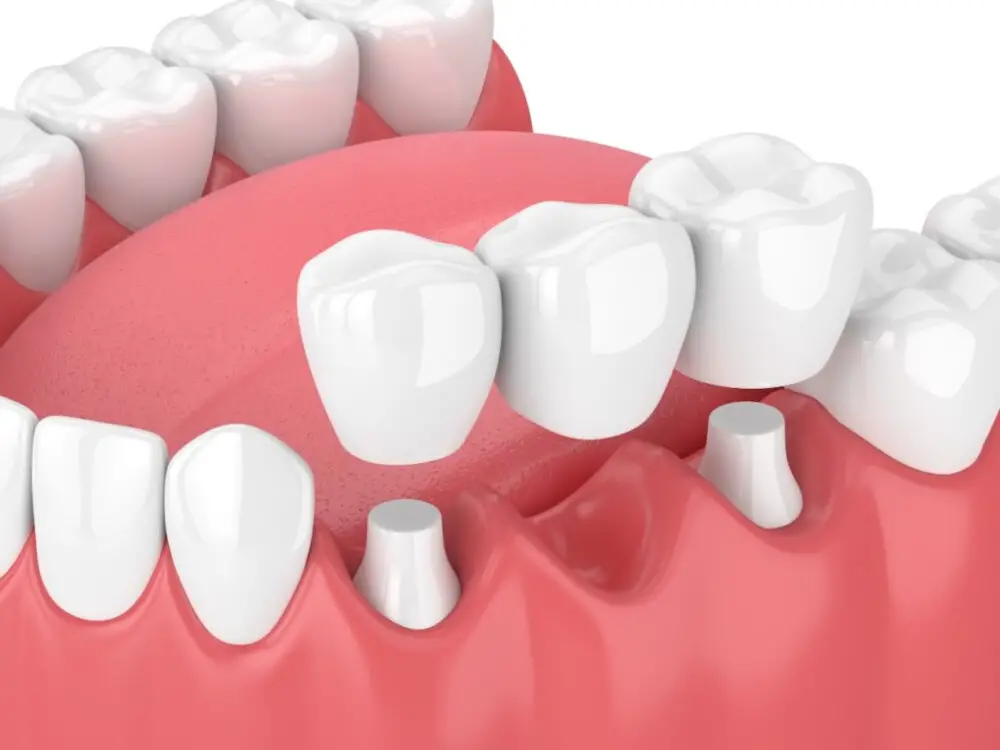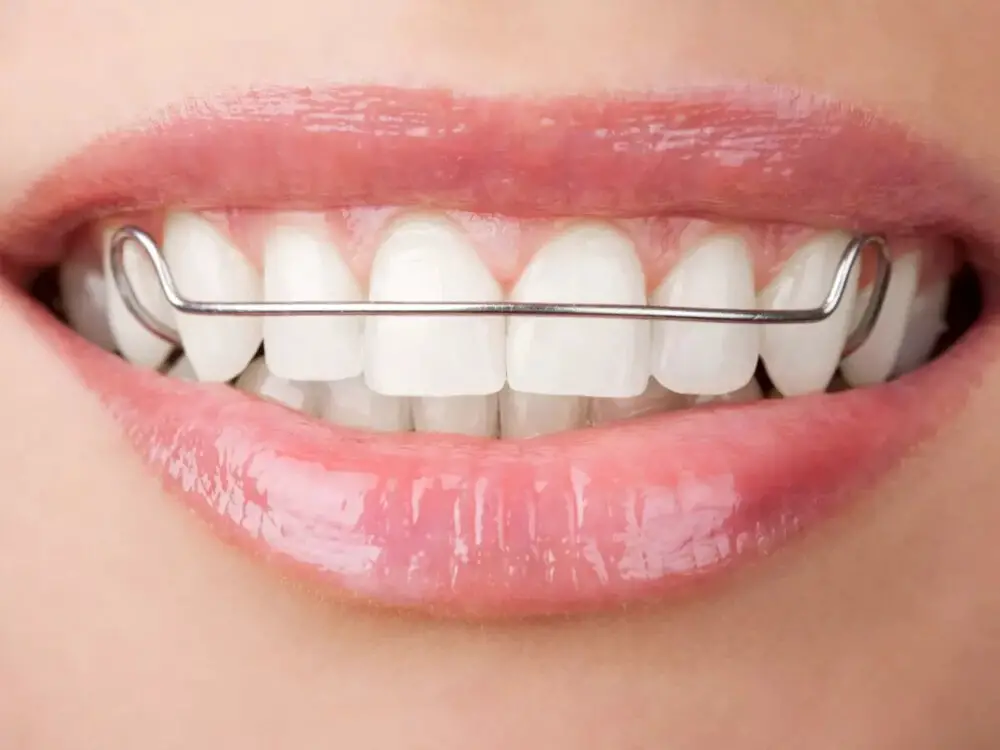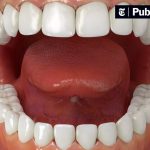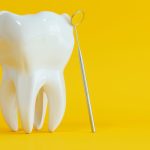Why Do My Bottom Teeth Hurt When I Breathe? Understanding the Causes and Remedies

Pain or discomfort in the teeth can be a distressing experience. But have you ever experienced bottom teeth pain when you breathe? This can be a unique and perplexing issue that leaves many people wondering what could be wrong. While the cause of this pain may vary from person to person, it is important to understand the potential causes and remedies to relieve this discomfort and maintain good oral health. There are several possible reasons why you may experience bottom teeth pain when you breathe. Some common causes include cavities, gum disease, sinusitis, or teeth grinding. It is essential to identify the root cause of the pain to determine the most effective treatment. Without proper diagnosis and treatment, the pain may worsen, leading to more severe health problems. In this article, we will explore the various causes of bottom teeth pain when breathing and provide remedies to help relieve the discomfort.
The problem of experiencing pain in the bottom teeth when breathing can be quite uncomfortable and even alarming for some individuals. This is because the sensation of pain is often associated with something serious, such as a dental infection or a more severe underlying condition. However, the most common cause of this problem is related to sinus issues, which can lead to pressure buildup in the sinuses and affect the teeth and gums. Other possible causes include teeth grinding, gum disease, or a misaligned bite. It is important to identify the root cause of the problem so that appropriate remedies can be applied to alleviate the pain and prevent further complications.
Understanding the causes and remedies of any medical condition is essential for effective management and treatment. In the case of bottom teeth pain when breathing, it is crucial to identify the root cause of the problem to develop an appropriate treatment plan. Neglecting the underlying cause of pain can lead to more severe dental issues, including gum disease, tooth decay, and even tooth loss. Therefore, it’s crucial to consult with a dental professional to diagnose the problem accurately and treat it accordingly. By understanding the causes and remedies of bottom teeth pain when breathing, patients can take necessary precautions and preventive measures to avoid future dental problems. It is always better to address the issue at its earliest stage to avoid complications and additional costs.
Dental Issues

Dental issues are a common problem that many people face, and they can manifest in a variety of ways. One of the most common dental issues is tooth decay, which occurs when plaque builds up on the teeth and eats away at the enamel. This can lead to cavities, sensitivity, and pain. Another common issue is gum disease, which is caused by bacteria that infect the gums and can lead to inflammation, bleeding, and even tooth loss. Other dental issues include cracked or broken teeth, impacted wisdom teeth, and oral cancer. It is important to take care of your teeth and gums by brushing and flossing regularly, visiting the dentist for check-ups and cleanings, and avoiding sugary or acidic foods and drinks. If you are experiencing dental pain when breathing, there may be several potential causes. One possibility is that you have a dental abscess, which is a bacterial infection that can cause pain and swelling in the affected tooth and surrounding area. Another possibility is that you have a cracked or chipped tooth, which can expose the sensitive nerves inside and cause pain when you breathe in cold air. Additionally, if you have gum disease, the inflamed and infected gums can cause pain and sensitivity when you breathe. It is important to see a dentist if you are experiencing dental pain, as they can diagnose the issue and provide the appropriate treatment, which may include antibiotics, a root canal, or extraction.
There are several dental problems that can cause bottom teeth to hurt when breathing. One of the common causes is cavities, which occur due to tooth decay caused by bacteria. Gum disease is another culprit that can lead to tooth sensitivity, pain, and discomfort. It happens when plaque buildup on teeth and gum causes inflammation and infection. Tooth abscesses, which occur due to bacterial infection in the tooth’s pulp, can also cause severe pain and discomfort, often accompanied by fever, swelling, and difficulty breathing. These dental problems require immediate attention from a dentist to prevent further damage to the teeth and gums.
Dental issues such as gum disease, tooth decay, or tooth abscess can have a significant impact on the teeth and surrounding tissues. Gum disease can cause the gums to recede, exposing the roots of the teeth and making them more sensitive to hot and cold temperatures. Tooth decay can lead to cavities, which can cause pain and sensitivity when eating or drinking. If left untreated, tooth decay can also lead to tooth loss. Tooth abscess, on the other hand, can cause severe pain and swelling in the affected area, and can even lead to the spread of infection to other parts of the body. These dental issues can also affect the surrounding tissues, including the jawbone and the soft tissues of the mouth, leading to further complications if left untreated.
There are various dental treatments that can help alleviate the pain associated with bottom teeth. One of the most common treatments is root canal therapy, which involves removing the infected or damaged pulp tissue from the root of the tooth. Another treatment option is dental crowns, which are used to cap the damaged tooth and protect it from further damage. Dental fillings are also used to fill cavities and prevent further decay. Additionally, if the pain is caused by gum disease, then a deep cleaning procedure known as scaling and root planing may be required to remove the bacteria and plaque buildup from the teeth and gums. In severe cases, tooth extraction may be necessary to alleviate the pain and prevent further complications.
Sinus Infections

Sinus infections, also known as sinusitis, occur when the tissue lining the sinuses becomes inflamed or swollen. This condition can cause pain and pressure in the face, as well as congestion and difficulty breathing through the nose. Sinus infections can be caused by a variety of factors, including allergies, viral or bacterial infections, and structural abnormalities in the sinuses. Common symptoms of sinus infections include facial pain or pressure, headache, postnasal drip, and a cough that worsens at night. Treatment for sinus infections typically involves antibiotics and decongestants to relieve symptoms and reduce inflammation. Sinus infections can also cause referred pain in the teeth and jaw. This occurs because the maxillary sinuses, which are located in the cheekbones, are located near the roots of the upper back teeth. When these sinuses become inflamed, they can put pressure on the roots of the teeth, causing pain and discomfort. Additionally, sinus infections can cause tooth sensitivity to hot and cold temperatures and pain when biting or chewing. If you are experiencing tooth pain or sensitivity along with other symptoms of sinusitis, it is important to see a healthcare professional to determine the underlying cause and develop an appropriate treatment plan.
Sinus infections are known to cause a variety of unpleasant symptoms, including congestion, headaches, and pain in the face. However, many people are surprised to learn that sinus infections can also cause bottom teeth to hurt when breathing. This is because the maxillary sinuses, which are located above the upper teeth, can become inflamed and press down on the roots of the teeth. This pressure can cause a dull ache or throbbing pain that may be exacerbated by breathing through the nose. In some cases, the pain may be felt in the bottom teeth rather than the upper teeth due to the way the sinuses are connected. If you are experiencing tooth pain when breathing, it is important to see a dentist or doctor to determine the underlying cause and receive appropriate treatment.
Sinus infections are a common ailment that can cause a variety of uncomfortable symptoms. One of the most common symptoms is a stuffy nose, which can make it difficult to breathe properly. Additionally, those with a sinus infection may experience facial pain, which can be felt in the cheeks, forehead, and around the eyes. This pain can be particularly intense when bending over or lying down. A fever is also a common symptom of a sinus infection, as the body tries to fight off the infection. Other symptoms may include headaches, fatigue, and a cough. If left untreated, a sinus infection can become more severe and may require medical attention.
Sinus infections are a common ailment that can cause discomfort and pain in the face, head, and teeth. Treatment options for sinus infections typically involve the use of antibiotics and decongestants. Antibiotics are effective in treating bacterial infections that may be causing the sinusitis. Decongestants, on the other hand, work by reducing the swelling and inflammation in the nasal passages, making it easier to breathe. Over-the-counter medications such as nasal sprays and saline solutions can also help to alleviate sinus pressure and congestion. It is important to consult with a healthcare professional before beginning any treatment regimen, as they can help to determine the underlying cause of the sinusitis and recommend the most appropriate treatment plan.
Bruxism

Bruxism, also known as teeth grinding, is a condition that affects many people around the world. It is characterized by the involuntary grinding or clenching of teeth, especially during sleep. Although it can occur at any age, it is more common in young children and adolescents. Bruxism can cause a range of problems, including tooth damage, jaw pain, headaches, and earaches. In severe cases, it can even lead to tooth loss. The causes of bruxism are not fully understood, but stress, anxiety, and sleep disorders are believed to be contributing factors. Treatment options for bruxism include mouthguards, muscle relaxants, and stress management techniques. If left untreated, bruxism can have serious consequences for your dental health and overall well-being. The constant grinding and clenching can wear down your teeth, leading to sensitivity, chips, cracks, and even tooth loss. It can also cause pain and discomfort in your jaw, head, and neck, making it difficult to sleep and concentrate during the day. If you suspect that you may have bruxism, it is important to seek treatment as soon as possible. Your dentist can help you identify the underlying causes of your condition and recommend the most appropriate course of treatment. By addressing bruxism early on, you can protect your teeth, improve your sleep, and enhance your quality of life.
Bruxism is a condition characterized by teeth grinding or clenching, which mostly occurs unconsciously during sleep. The constant grinding can exert pressure on the teeth, and if left untreated, it can lead to various dental problems, including worn-out teeth, jaw pain, and headaches. Additionally, bruxism can cause the bottom teeth to hurt when breathing. The constant grinding can cause the teeth to become sensitive, and when taking a deep breath, the air can cause a sharp pain sensation in the teeth. Therefore, it is essential to seek medical attention if you experience teeth grinding or clenching to prevent further dental complications.
Bruxism is a condition characterized by the involuntary grinding and clenching of teeth, usually during sleep. Symptoms of bruxism include jaw pain, headaches, earaches, and worn-down teeth. People with bruxism may also experience muscle tenderness and fatigue, as well as stiffness in the jaw and limited range of motion. In severe cases, bruxism can lead to tooth fractures, cracked teeth, and even tooth loss. If left untreated, bruxism can cause significant damage to the teeth and jaw, leading to more serious health problems. To prevent or manage bruxism, individuals can try various remedies such as stress management, mouthguards, and relaxation techniques.
Bruxism, a condition characterized by the grinding or clenching of teeth, can cause discomfort and pain in the teeth and jaw. Fortunately, there are various strategies for treating bruxism. One effective approach is to wear a mouthguard, which can protect the teeth from damage and alleviate the pain associated with bruxism. Additionally, reducing stress levels through techniques such as meditation or exercise can help with bruxism, as stress often exacerbates the condition. In some cases, medication or therapy may also be recommended to address underlying psychological factors contributing to bruxism. By taking these steps, individuals with bruxism can alleviate their symptoms and improve their overall oral health.
Temporomandibular Joint (TMJ) Disorder

Temporomandibular Joint (TMJ) Disorder is a condition that affects the jaw, causing pain and discomfort. The TMJ is the joint that connects the jawbone to the skull. It allows the jaw to move up, down, and side to side, making it possible to speak, eat, and yawn. When the TMJ is not functioning properly, it can cause pain in the jaw, face, and neck. Some people may also experience ear pain or ringing in the ears. TMJ disorder can be caused by a variety of factors, including injury to the jaw, arthritis, stress, or teeth grinding. Treatment for TMJ disorder may include medication, physical therapy, or surgery in severe cases. People who suffer from TMJ disorder may experience symptoms such as jaw pain, stiffness, or clicking or popping sounds when they open or close their mouth. They may also have difficulty chewing or biting, or may experience pain in their neck or shoulders. In some cases, TMJ disorder can even cause headaches or migraines. If you are experiencing any of these symptoms, it is important to see a dentist or doctor for an evaluation. They can help determine the cause of your symptoms and recommend an appropriate treatment plan to help alleviate your pain and discomfort.
TMJ disorder, also known as temporomandibular joint disorder, refers to a condition where the joint that connects the jawbone to the skull becomes inflamed or damaged. When this happens, it can cause pain and discomfort in the jaw, face, and neck. In addition, TMJ disorder can also lead to referred pain in other areas of the body, such as the teeth and ears. When the lower jaw is not properly aligned, it can cause pressure on the teeth and gums, leading to pain and discomfort, especially when breathing. This is because the act of breathing puts pressure on the jaw and can exacerbate the pain caused by TMJ disorder. Proper diagnosis and treatment of TMJ disorder can help alleviate the pain and discomfort associated with this condition.
One of the most common causes of pain in the jaw is TMJ disorder, which affects the temporomandibular joint. This can cause a variety of symptoms, including pain in the jaw or face, clicking or popping sounds when you open or close your mouth, difficulty chewing or biting, and a feeling of tightness in the jaw muscles. Some people may also experience ear pain, headaches, or neck pain. These symptoms can be mild or severe and can affect one or both sides of the face. If you experience any of these symptoms, it’s important to see a dentist or doctor for an evaluation and treatment options.
TMJ disorder, also known as temporomandibular joint disorder, is a condition that affects the joint connecting the jawbone to the skull. The symptoms of TMJ disorder include pain in the jaw, ear, and neck, difficulty chewing, and clicking or popping sounds when opening the mouth. Treatment options for TMJ disorder include physical therapy to strengthen the muscles around the jaw, medication to reduce pain and inflammation, and surgery in severe cases. Physical therapy may include exercises to stretch and strengthen the jaw muscles, as well as techniques to improve posture and reduce stress. Medications such as nonsteroidal anti-inflammatory drugs (NSAIDs) and muscle relaxants can help relieve pain and inflammation. Surgery may be necessary in cases where other treatments have failed, and can involve repairing or replacing the joint.
Bottom teeth pain when breathing can be caused by a number of factors, including dental issues, sinus problems, or even stress. Dental problems, such as cavities or gum disease, can cause pain and sensitivity in the teeth when breathing. Sinus problems, such as sinusitis or allergies, can cause pressure and pain around the nose, cheeks, and teeth. Stress can also cause tension and clenching of the jaw, leading to tooth pain. Remedies for bottom teeth pain when breathing can include practicing good oral hygiene, using over-the-counter pain relievers, using a sinus rinse or nasal spray, or seeking dental or medical treatment depending on the cause of the pain. It’s important to identify the underlying cause in order to properly address the issue and prevent further discomfort.
It is crucial to seek professional dental or medical advice if you experience persistent pain or discomfort in your teeth or jaw. Ignoring such symptoms can lead to further complications, and it is always better to be safe than sorry. Your dentist or doctor may be able to identify the underlying cause of the pain and provide you with the appropriate treatment. Delaying treatment can lead to more severe problems and may cause irreversible damage. Therefore, if you are experiencing any discomfort or pain in your teeth or jaw, it is vital to seek professional advice as soon as possible to avoid any further complications.
Conclusion

In conclusion, pain in the bottom teeth while breathing can be a result of various underlying causes, ranging from dental issues to sinus problems. It is essential to identify the root cause to determine the appropriate remedy. Seeking professional dental or medical advice is recommended to avoid any further complications. Simple home remedies such as saltwater gargles, ice packs, and nasal irrigation can also provide temporary relief. Maintaining good oral hygiene and avoiding triggers such as smoking and excessive caffeine intake can aid in preventing future instances of tooth pain while breathing.







